Funerals and the Americans with Disabilities Act (ADA)
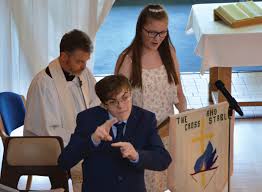 “Awareness is the greatest agent for change.” -Eckhart Tolle
“Awareness is the greatest agent for change.” -Eckhart Tolle
In funeral service, we have all likely received a call asking for a sign language interpreter at a funeral. There are two types of reactions to this request. First, the phenomenal directors who jump into action to provide and pay for the interpreter. Second, the less than stellar directors who use excuses to say no, or worse, provide the interpreter but add it to the family’s statement.
As a deaf funeral director, even Jessica Stern did not have a clear understanding of what the law requires funeral homes to provide under the Americans with Disabilities Act (ADA). The formal ADA document for businesses is 267 pages and can be found at https://www.ada.gov/regs2010/titleIII_2010/titleIII_2010_regulations.pdf.
After reading this complicated document, Jessica contacted Paula MacDonald of Minnesota’s Department of Human Services to create the following analysis of ADA for funeral homes.
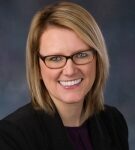
Jessica Stern
Funeral Director
WHAT: Any auxiliary aids requested must be provided by a funeral home to the best of their ability. These include, but are not limited to: ASL interpretation, Cued Speech Transliteration, Tactile Sign Language, or live captioning systems (CART). NOTE: Be sure to have a clear understanding of what is being requested.
WHO: Any person meeting with funeral staff (preneed or at need) or any person who will be attending funeral events can request accommodations. NOTE: It does not matter their relationship to the deceased.
WHEN: Any time a funeral home is hired to provide staff or if they are hired to help plan the events. NOTE: “Writing and submitting obituary notice(s)” is considered planning so if this is listed under an immediate cremation description, the funeral home must provide accommodations even if they are not present.
WHERE: Any location the funeral home is hired for or helped to plan. If an event is offsite, the funeral home holds the first obligation and the offsite facility holds the second. This covers ALL events that the requestor wants accommodations at including visitation(s), the service, cemetery ceremonies, and a luncheon (even if staff do not stay to eat). NOTE: Religious facilities are exempt.
Advice to funeral homes:
- Find local interpreters to add to your phone list. If hired directly, many interpreters provide funeral homes with what they call “school rates”. For example, Starkson Family Life Celebration Chapel has local interpreters who charge $40 an hour (3 hour minimum) whereas their local agency charges $150 an hour (2 hour minimum).
- Do not look at accommodations on a case by case basis but rather as a pot of money. As a firm, start setting aside a certain amount of money from each funeral to be prepared. The plus to this mindset is you might have extra funds left over at the end of the year to update your facility such as getting new handicap accessible signs or an automatic door.
- Learn about grants in your area. Many states have funds available to help non-profit funeral homes or firms in remote areas. In Minnesota, there are funds available to offset travel expenses of interpreters to the “Greater Minnesota Area” (the area outside of the metro).
- Research CART systems in case an interpreter is not available. A live captioning system can be used as a back up to help show a family due diligence on your part. The CART system can be an in-person specialist or someone remotely typing the captions to an iPad or computer.
- If you have multiple requests for one funeral, then hire several interpreters or use multiple auxiliary aids as there might be different conversations happening in separate areas.
- Review your immediate cremation description to evaluate if you would be obligated to provide accommodations. If you want to be of extra help to your families then consider creating two packages for immediate cremation: one for basic cremation and one which includes extra planning assistance but is priced higher.
If we all strive to create an inclusive environment within funeral service, we can convert basic awareness into the new standard.
Jessica Stern is a deaf funeral director with Starkson Family Life Celebration Chapel in Hastings, Minnesota. When her firm hosted a preplanning seminar for over 40 deaf and hard of hearing individuals in 2019, the attendees raised the issue of not being able to get accommodations at funerals because of the lack of awareness within the profession. This moved their advocacy campaign from informing D/HH individuals about ADA to educating funeral directors instead.
This article is relevant nationwide as ADA is a federal law. The above is for educational purposes only and should not be considered legal advice. If you need further assistance, contact Great Lakes ADA Center at http://www.adagreatlakes.org/








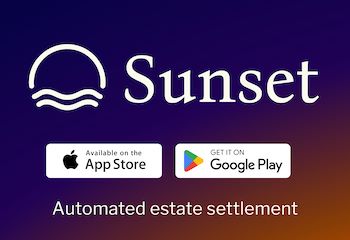
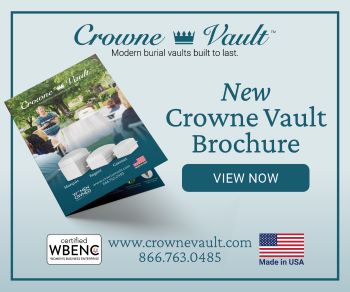


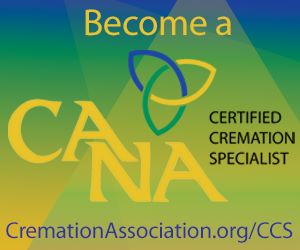







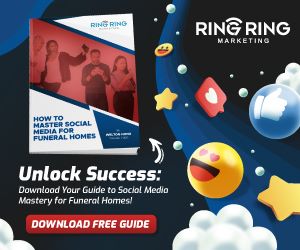

hello to you my name is Faith Davis am deaf and I need one interpeter for funeral service at 1:30 to 2:30pm and J.B. Jenkins Funeral Home 7474 Landover Road Hyattsville Md , I need one person use ASL sign language, you can call 202 796 5049 vp. please help me okay.
Excellent! Jessica presented this information at a few of our District meetings last year. I have used her as a resource for the calls that we get at MFDA on this topic.
We recently had this request and spoke with Jessica; she connected us with a resource. Jessica was very helpful and we were happy to provide this service to the family we served.